Book of the Day Roundup March 18-22, 2019
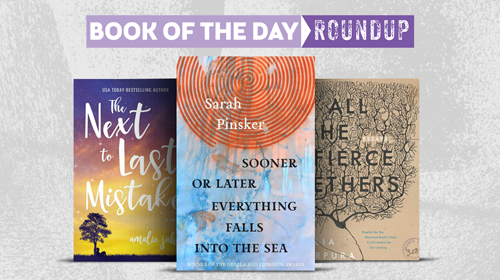
Hello, Stranger
My Life on the Autism Spectrum
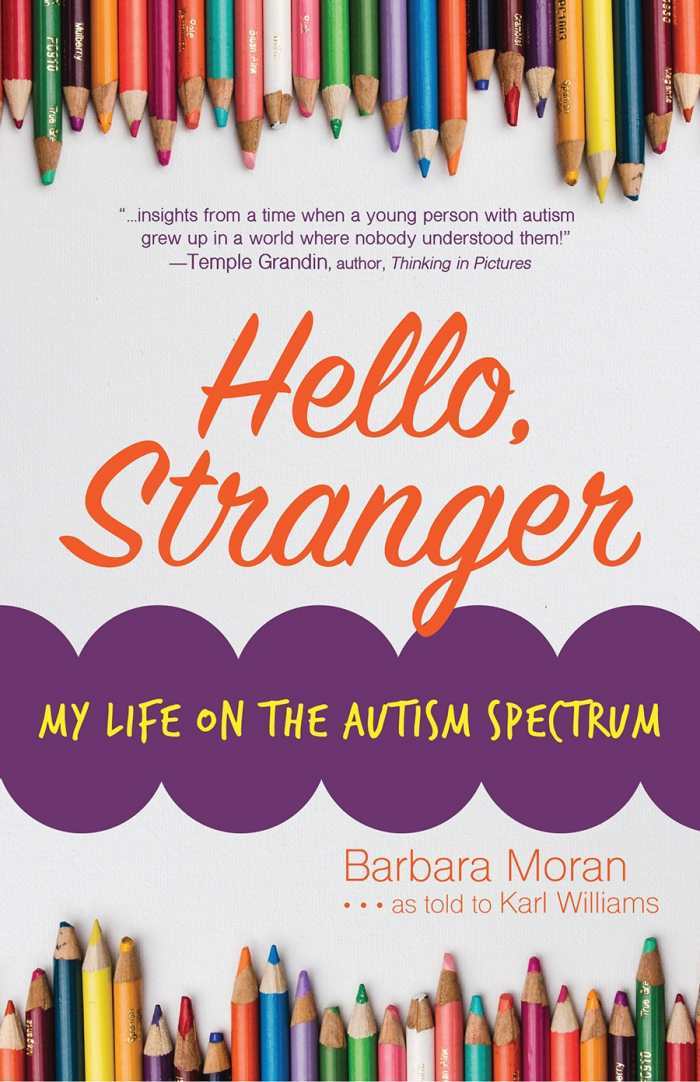
Barbara Moran
Karl Williams
KiCam Projects
Softcover $18.95 (240pp)
978-0-9997422-5-9
Buy: Local Bookstore (Bookshop), Amazon
It’s impossible to see inside someone else’s mind to achieve true empathy, but Barbara Moran and Karl Williams’s Hello, Stranger comes close.
Born in the early 1950s, Barbara Moran felt out of place and lonely for the first few years of her life. Fond of inanimate objects and large buildings, she would pretend they were human and have conversations with them that she felt incapable of having with the people around her. Her tics, tantrums, and delayed development worried her family tremendously.
She was only ten years old when her parents sent her to Menninger’s, a clinic for mentally ill children, where she lived until she was eighteen. There, she felt as if she wore an “invisible straitjacket” every day, with doctors deeply misunderstanding her behavior and putting words in her mouth when they couldn’t comprehend what was really going on in her mind. “It was like I had been banished from society and I would be held hostage until I changed into somebody else—someone I could never be,” she says. Hello, Stranger describes every painful feeling stemming from her experience there—and the joyful experiences as well.
Narrated by Moran, as told to Williams, the book reads like a stream-of-consciousness diary reflecting back on years where Moran was more “in her own world” than a part of the outside world. The thoughts running through an autistic mind, unreachable to many doctors and family members, are portrayed here without judgement, fear, or self-consciousness. Moran’s language perfectly conveys the emotions, tics, and relationship needs she struggled to communicate and opens up the potential for further dialogue on the ever-changing treatment of autistic children and young adults today.
Much of the book focuses on her childhood at Menninger’s, which offers a perspective rarely explored in literature. Though the book skims over her adulthood much too quickly, the story is inspiring nonetheless.
AIMEE JODOIN (February 27, 2019)
Sooner or Later Everything Falls into the Sea
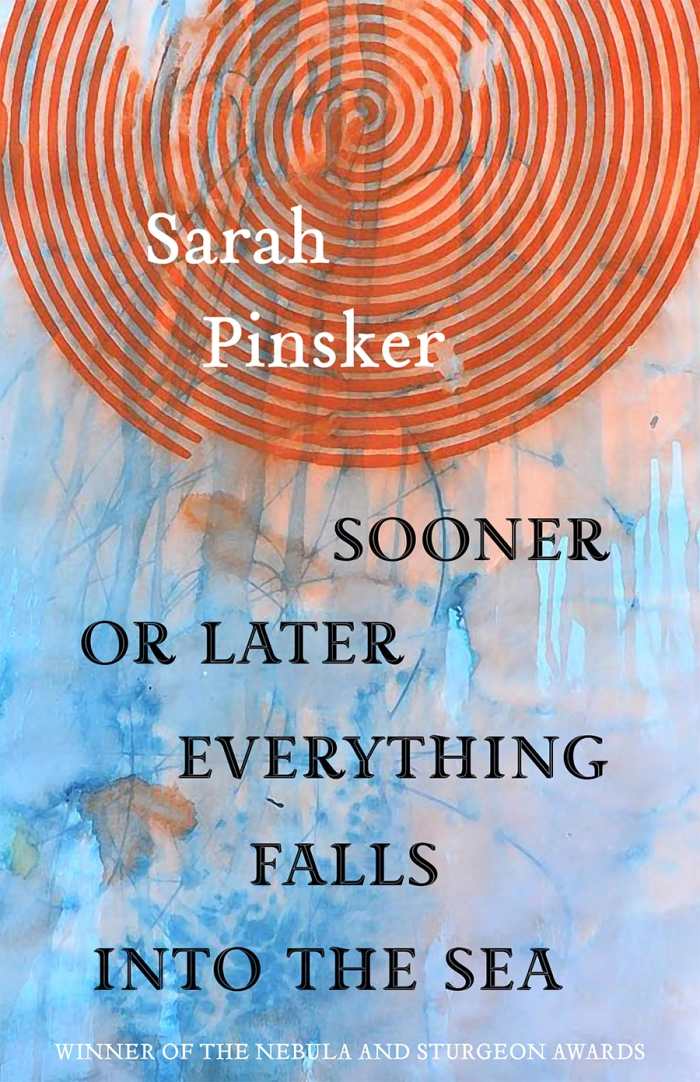
Sarah Pinsker
Small Beer Press
Softcover $17.00 (288pp)
978-1-61873-155-5
Buy: Local Bookstore (Bookshop), Amazon
Shattering melancholia and desire and cobbling together fresh wonders from the pieces, the stories of Sarah Pinsker’s speculative Sooner or Later Everything Falls into the Sea emit appealing weirdness.
In these odd and alluring tales, yearning manifests itself into something tangible; it congeals, breathes, and breaks the barriers between dreams and reality. A never-mother is internally called, along with hundreds of others, to a California seashore, where wanted, haunting children emerge from the waves. A community traveling through deep space for generations loses its ability to make art: “People on Earth wrote about blue skies because they’d stood under grey ones. They wrote about night because there was such a thing as day …. Past and future are both abstractions now.”
A computer chip embedded with the notion of a Colorado highway transfers its wanderlust to a human patient. Memories are simultaneously cherished and evaded. In the cli-fi title story, the architects of Earth’s destruction have taken to cushy ocean liners as their swan song; on shore, those they left behind forge new, gentler lives. In “The Low Hum of Her,” a father and daughter escape historical horrors with the help of an imitation grandmother and her birdcage belly.
Every ounce of the familiar is garnished with a twist. In Pinsker’s universe, the truth about alien life lies beneath family idylls, time travel is a means of staying sane, and there are ways around the sirens that block the bay. The concluding story gives new meaning to “kill your darlings.”
Whether Pinsker’s characters are on spacecraft jetting toward the future or are in the distant past, they contend with familiar worries and wants: questions of what should be forgotten and what should be preserved; concerns around revealing their identities to people who only see in black and white. Even at their most winding and imaginative, these are tales that feel like home, if it’s “home” regarded from a different angle. Sooner or Later Everything Falls into the Sea is a collection whose musing visions none should try to resist.
MICHELLE ANNE SCHINGLER (February 27, 2019)
The Next to Last Mistake
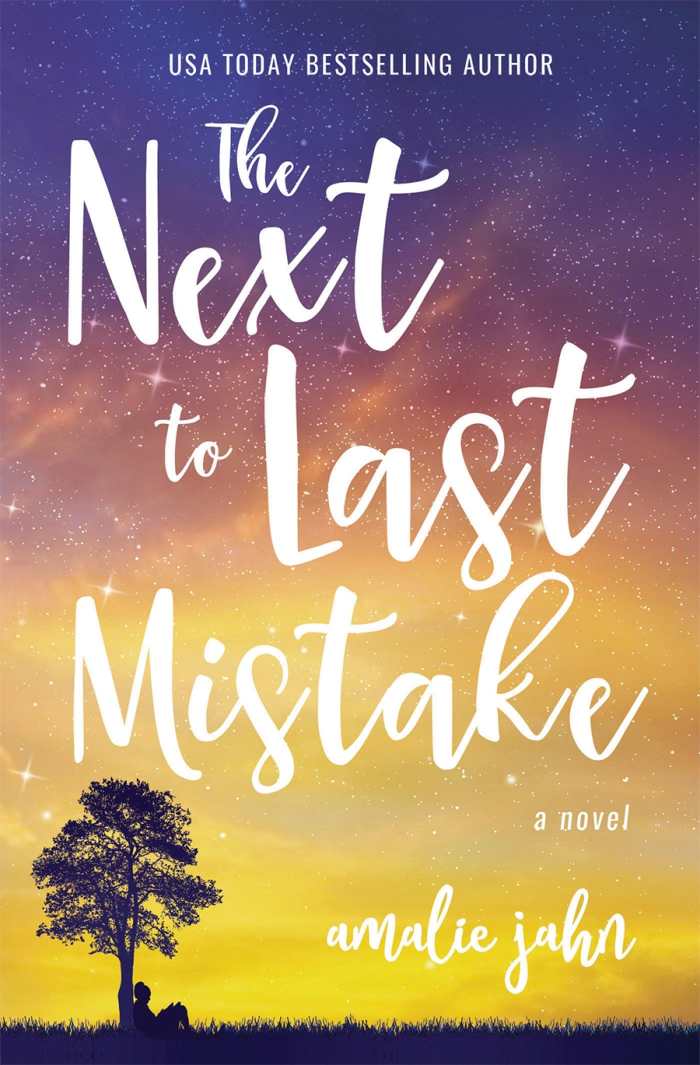
Amalie Jahn
Light Messages
Softcover $15.99 (286pp)
978-1-61153-264-7
Buy: Local Bookstore (Bookshop), Amazon
Amalie Jahn’s The Next to Last Mistake is an insightful story about love and friendship.
Tess Goodwin is happy with her life as a farm girl in Iowa. She is content with her cows, her chess club, and most importantly, her best friend, Zander. But her happy life is turned upside down when her veteran father reenlists and moves the family to North Carolina.
The discussions of complex social issues in the story are both beautiful and remarkable. Tess is sure she will not fit in, but another student, Leonetta, is assigned to help Tess adjust at her new high school. Leonetta becomes the first of three amazing new friends.
In North Carolina, Tess is exposed to issues surrounding race for the first time, and her new friendships are based as much on supporting each other as they are on all that the girls have in common. Tess comes to realize that acknowledging and exploring our differences can be a wonderful way to learn and grow; the lesson is incorporated naturally.
Lessons on growing up and accepting change are just as seamless and profound. Tess’s fears about moving and fitting in are sympathetic. Despite her difficulties, she learns a great deal and discovers that her new life may have more to offer than she realized. Her family and her new friends are patient and supportive as she navigates the unfamiliar landscape. Her longing for Zander never fades, but their distance helps her to define and understand their friendship on a new level. She comes to recognize the importance of allowing this relationship to mature.
The Next to Last Mistake is a poignant and sweet story of love, loss, discovery, and the enduring bonds of friendship.
CATHERINE THURESON (February 27, 2019)
A Good Night for Shooting Zombies
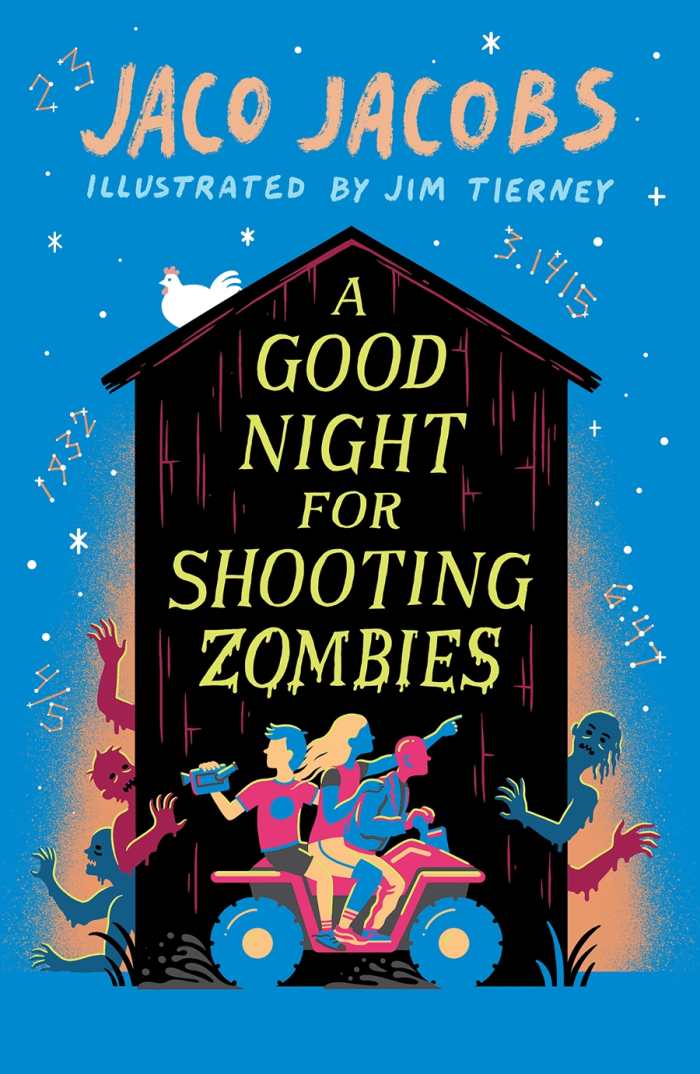
Jaco Jacobs
Kobus Geldenhuys, translator
Rock the Boat
Softcover $12.95 (176pp)
978-1-78607-450-8
Buy: Local Bookstore (Bookshop), Amazon
In Jaco Jacobs’s A Good Night for Shooting Zombies, Martin’s life is shattered the day his father is killed in a car accident. Two years later, his normally gregarious ex-actress mother is housebound, his sister is always out with her gangster boyfriend, and Martin himself is relatively friendless, with an almost unhealthy obsession with numbers. When he goes next door to confront the boy whose dog has just killed his prize chicken, he doesn’t realize that meeting Vusi will completely change his life.
Vusi is battling cancer. His only goal in life is to make the best zombie movie the world has ever seen. Martin finds himself being sucked into Vusi’s dream, too. The boys develop a strong friendship that is a light in Martin’s otherwise dark life. As the two go against all odds to make their movie dreams a reality, Martin realizes that life is about much more than just numbers.
A Good Night for Shooting Zombies is set in South Africa and is an excellent introduction to translated works for middle grade readers. It features accessible situations, easy-to-like characters, and plenty of action. Martin is the perfect antihero with his strange mannerisms and crushing loneliness, while Vusi makes the ideal underdog. The boys’ relationship is heartfelt and believable and develops smoothly and humorously throughout their zombie project.
Though Martin and Vusi are on an outlandish and often hilarious quest, Vusi’s illness hangs over the book like a thick fog. While other characters make brief appearances, adding to the plot and atmosphere of the book, it’s really all about Martin and Vusi’s friendship. Never too sentimental or depressing, A Good Night for Shooting Zombies strikes a perfect balance of humor and heartbreak and helps to define what friendship really means.
ANGELA MCQUAY (February 27, 2019)
All the Fierce Tethers
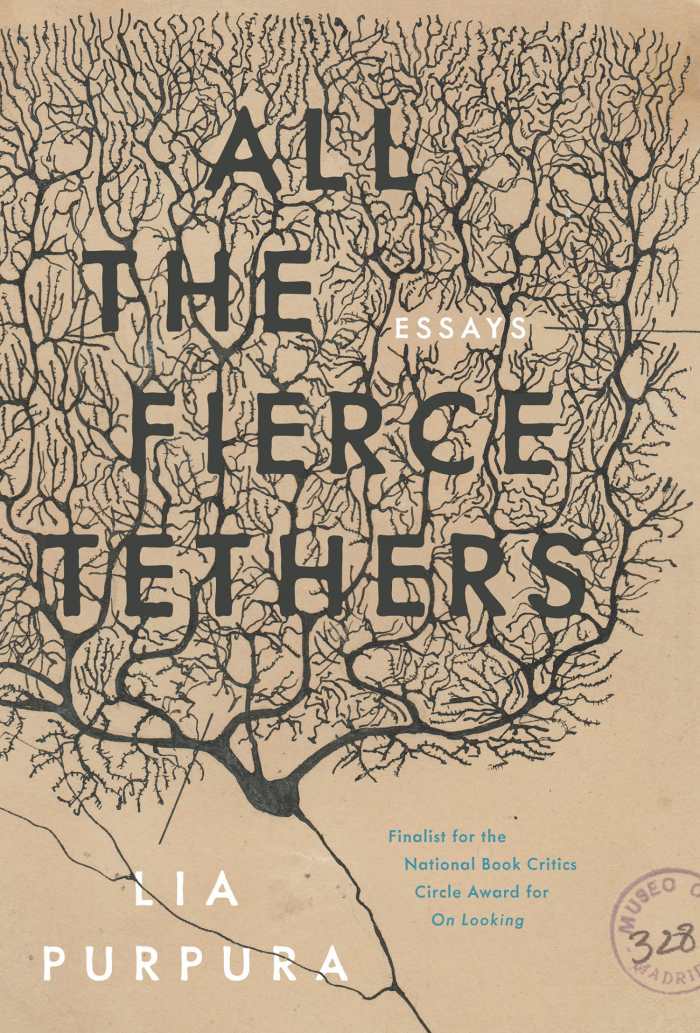
Lia Purpura
Sarabande Books
Softcover $16.95 (200pp)
978-1-946448-30-9
Buy: Local Bookstore (Bookshop), Amazon
“Metaphors get compromised. Get eroded and need updating. Rerouting. Reconstituting,” writes Lia Purpura. This is just one of the luminous themes mined in her glittering new essay collection All the Fierce Tethers. In prose that is inventive, with ideas that contract and dilate with fluidity, Purpura considers the mundane and crafts powerful essays that traverse the landscapes that surround us.
From the opening essay of this twenty-essay collection “Scream or Never Minding,” Purpura confronts, questions, and engages with the objects we use every day. A tin of mints, mugs with famous paintings on them, and a battery-operated drill are among the objects that Purpura examines. Like a slow-moving ricochet, she moves from one free association to another; the accumulation causes the reader to feel Purpura’s own frustration with what we keep and what we throw away. This deconstruction of things and systems reappears in several pieces—as a framework for examining environmentalism as in “All the Fierce Tethers,” “Metaphor Studies,” and “Loss Collection.”
There are personal histories woven into philosophical thoughts in the essays “Entry Cove,” “My Eagles,” and “Walk with Snowy Things.” Although Purpura examines specific moments in her life, they lead to the discovery of universal truths that affect us all: neighborhoods changing, existential angst, and the visible and invisible boundaries we create.
Moments of lightness and awe come in brief essays where Purpura focuses on specific moments in nature. In “Three-Legged Branch,” she muses about an oak tree she remembers as spiritual touchstone. She discovers a sense of kinship and possession as well as ruin in “In the Despoiled and Radiant Now.”
All the Fierce Tethers is about loss, rebirth, moments, and meanings. The prose is sparse and brief but precise and effervescent. It’s a collection to be read and reread for its wondrous ruminations, which lead to small revelations that feel like gifts to the reader.
MONICA CARTER (February 27, 2019)
Barbara Hodge
